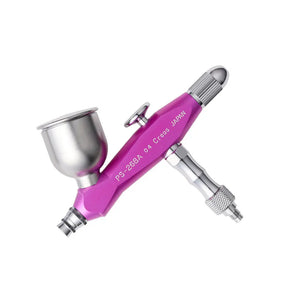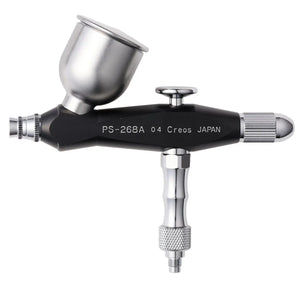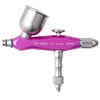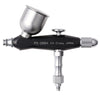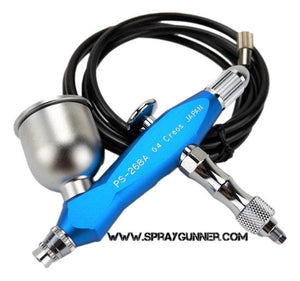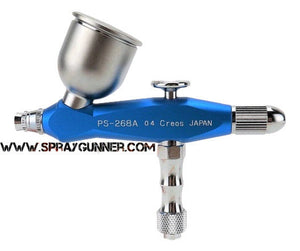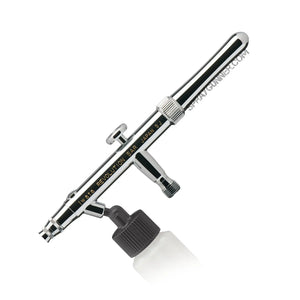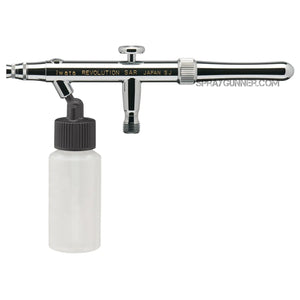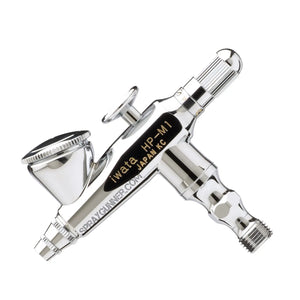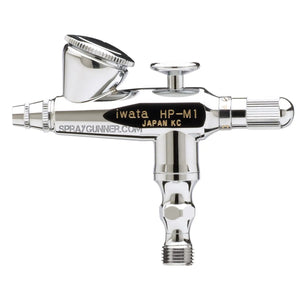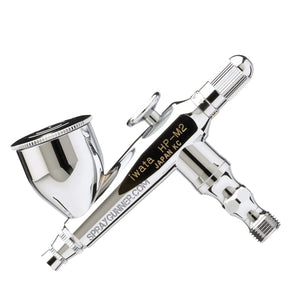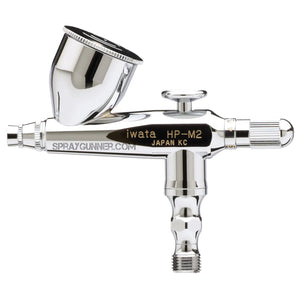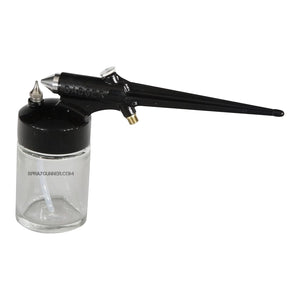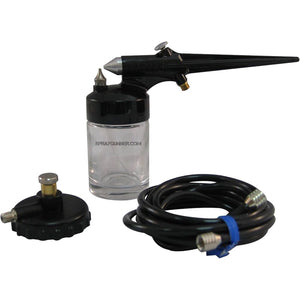-
Vendor:GSI Creos Mr. Hobby
GSI Creos Mr. Airbrush Procon Boy PS-268A 0.4 single action
Regular price $75.00 USDRegular price -
Sold outVendor:GSI Creos Mr. Hobby
GSI Creos Mr. Airbrush Procon Boy PS-268AB 0.4 single action
Regular price $78.00 USDRegular price -
Vendor:Iwata
Iwata Revolution HP-SAR Siphon Feed Single Action Airbrush
Regular price From $83.50 USDRegular price -
Vendor:Iwata
Iwata Revolution HP-M1 Gravity Feed Single Action Airbrush
Regular price From $86.28 USDRegular price -
Vendor:Iwata
Iwata Revolution HP-M2 Gravity Feed Single Action Airbrush
Regular price From $86.28 USDRegular price -
Vendor:Badger
Badger 250-1 Basic Single Action External Mix Spray Gun Set
Regular price $19.95 USDRegular price -
-$7.00 USDVendor:Badger
Badger 250-2 Basic Single Action External Mix Spray Gun Set
Regular price $19.00 USDRegular price$26.00 USD-$7.00 USD Sale price $19.00 USD
A single-action airbrush is a type of airbrush tool where the trigger controls only the airflow.
The paint flow is pre-set using a separate adjustment, and once you press down on the trigger, air and paint are released simultaneously at the fixed ratio.
This design is relatively simple and is often recommended for beginners or for applications where consistent coverage is more important than fine control, such as:
-
Base coating
-
Broad shading
-
Applying varnishes or primers
-
Craft or decorative projects
Key Features of Single-Action Airbrushes:
-
Trigger controls air only — paint amount is adjusted manually beforehand.
-
Simpler operation — easier to learn and use.
-
A consistent spray pattern is good for uniform coverage.
-
Lower maintenance — fewer moving parts make cleaning and disassembly easier.
Single Action vs. Double Action Airbrush: What's the Difference?
| Feature | Single Action Airbrush | Double Action Airbrush |
|---|---|---|
| Trigger Function | Controls air only | Controls both air (press) and paint (pull) |
| Paint Flow Control | Pre-set with knob or screw | Adjustable in real-time while spraying |
| Ease of Use | Beginner-friendly | Requires practice and coordination |
| Spray Versatility | Limited to consistent output | Allows variable line width and detail |
| Best For | Large areas, simple tasks | Fine detail, gradients, complex artwork |
| Common Use Cases | Hobby base coats, stencils | Illustration, miniatures, custom painting |
When to Choose a Single-Action Airbrush
Choose a single-action airbrush if:
-
You are new to airbrushing and want a low learning curve.
-
You plan to use it for consistent, repetitive tasks.
-
You want a more affordable and lower-maintenance tool.
-
Fine detailing and line control are not the priority for your project.
In summary, a single action airbrush is a straightforward tool ideal for uniform applications, while a double action airbrush offers more versatility and precision for experienced users or detailed work.


